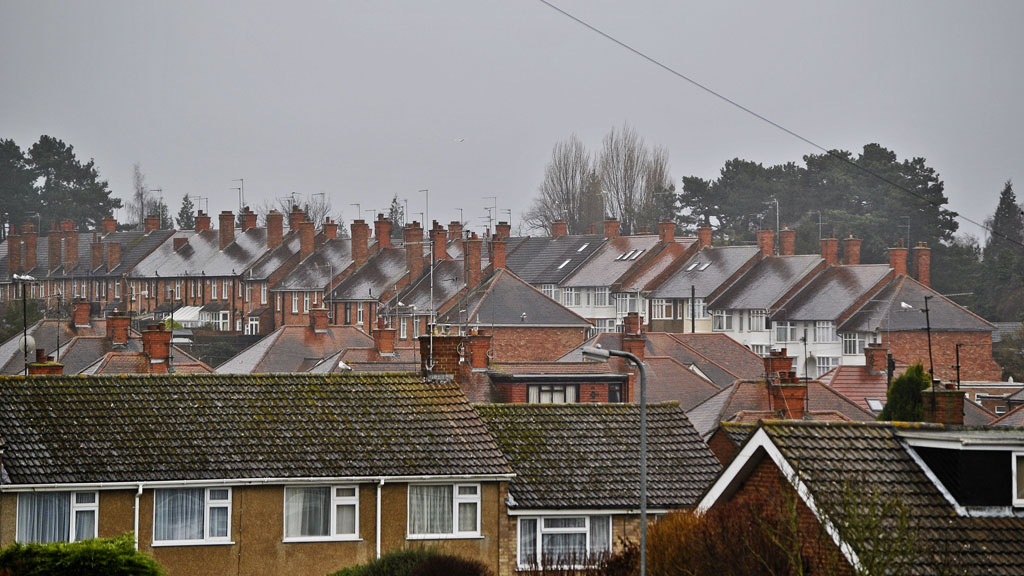‘Bedroom tax’ study raises serious questions
 Ciaran Jenkins
Data Correspondent and Presenter
Ciaran Jenkins
Data Correspondent and Presenter
The day of a major cabinet reshuffle can often be used for other purposes, for example quietly unveiling a report into the much-criticised “bedroom tax”. So is the much-maligned policy working?

Reshuffle day is considered the perfect opportunity for government departments to bury bad news.
And it’s surely too much of a coincidence that on this of all days, the Department for Work and Pensions has published its much-anticipated first report into the impact of the “removal of the spare room subsidy”.
Or as it is known to its critics, the “bedroom tax”.
Work and Pensions Secretary, Iain Duncan Smith, is going nowhere, by the way.
And this piece of work runs the rule over the first six months of one of his most controversial policies.
The report is based on surveys with social housing providers and tenants by researchers from the Cambridge Centre for Housing and Planning Research and the pollster Ipsos MORI.
Its 163 pages are dotted with revealing details, some of which raise fundamental questions about what the “bedroom tax” sets out to achieve, and whether it’s working.
1. Few claimants are downsizing
One of the main reasons the “bedroom tax” was introduced was to tackle over-occupancy in the social housing sector.
In fact just 4.5 per cent of households affected by the charge have downsized.
The report’s authors suggest this shows the policy has had “some success”.
We learn that plenty of claimants want to downsize in order to escape the charge, but have been unable to do so due to a shortfall of smaller properties.
2. Those hit are becoming poorer
Perhaps the biggest impact of the “bedroom tax” has been to reduce the incomes of those affected by it.
A huge 57 per cent of those surveyed said they had cut back on household essentials as a direct result.
In the report’s own words “cutting back on using energy and on food budgets was widespread, with many reporting remaining cold at home to reduce bills or regularly skipping meals.”
3. People are falling further into debt
Around one in five have borrowed from friends or family to pay for the reduction in their housing benefit. While six per cent, the equivalent of more than 30,000 people, say they have either taken out a credit card or pay day loan as a direct result of the policy.
4. Disabled households most likely to be hit
Around seven out of 10 households affected say they are caring for someone with a disability. The report also found difficulties among these 370,000 or so households in successfully claiming discretionary housing payments.The payments were intended to alleviate the effect of the policy among vulnerable groups.
5. The working poor are losing out
Those in work but on benefits are often overlooked in the big welfare debate.
So it’s telling that the DWP research finds that 59 per cent of those hit by the removal of the spare room subsidy say they are usually in paid employment.
Around one in five is currently in full or part time employment.
The government made no secret that a major aim of the policy was to incentivise people into work. It’s hard to see this measure as anything but a failure so far.
It turns out that one in five claimants tried to earn more money as a result of the charge, but the vast majority of them (87 per cent) were unsuccessful.
6. Thousands of people have not paid a penny
Containing the cost of housing benefit is an absolute cornerstone of this policy as far as the government’s PR-machine is concerned.
It was hoped the policy would trim £500m a year from the welfare bill.
Curiously, the report says nothing about whether these savings are on track. What we do learn is that almost 20 per cent of those affected by the “bedroom tax” have either refused to pay or been unable to pay at all.
A further 39 per cent have paid only some of what is owed. A minority, 41 per cent, are paying in full.
7. Arrears are up
It is hardly surprising, then, that arrears among social housing tenants have risen to £343m since the introduction of the policy.
Intriguingly, the DWP report concludes that the increase “cannot be directly attributed” to the removal of the spare room subsidy.
So is the “bedroom tax” working?
The DWP has certainly presented startling evidence that its policy is having an enormous impact on the lives of tens of thousands of people. Since its introduction, people claim to be borrowing more, skipping meals, turning off the heating, looking for jobs and not finding them, searching for smaller homes which appear not to exist.
Some families have found it easier to come by larger accommodation, vacated by those who have successfully downsized. But it’s hardly a big thumbs up for a policy which continues to divide opinion.
-
Latest news
-
As India goes to the polls in the world’s largest election – what do British-Indians think?6m

-
Tees Valley: Meet the candidates in one of the biggest contests coming up in May’s local elections4m

-
Keir Starmer says public sector reform will be a struggle7m

-
Nicola Sturgeon’s husband Peter Murrell charged with embezzlement of funds from SNP1m

-
Ukraine might finally get $60billion in American weapons and assistance to defend against Russia3m

-




